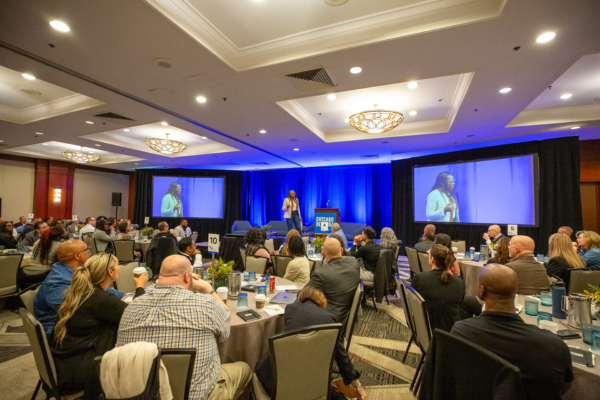In light of World Mental Health Day on October 10th, we’ve been reflecting on the systems built around caring for the families and individuals dealing with mental health challenges, and crisis writ large. Recently, our Managing Director of Justice Initiatives, Dr. Nneka Jones Tapia, participated in a Harris School of Public Policy panel about Reimagining Crisis Response.
In 2020, a federal bill was signed into law that established 988 as the nationwide hotline for suicide and mental health crises. The law was designed to ideally pave the way for states across the nation to start building their own infrastructures around new crisis responses – ones that meet callers with care when care is required.
The shift is direly needed. And it serves as an acknowledgement that our current crisis response system is failing us. Communities have been ravaged by these systems for generations, and it’s important that no line be drawn in addressing the intricate failures of these systems. Life-affirming alternatives to police are needed, because when emergencies are met with guns and batons, trauma, and in many cases, death, are the results.
Our poor crisis response system has led to the deaths of countless Black and Brown people. From Daniel Prude to Nicolas Chavez, there are several examples in which police responses have led to the loss of life, particularly for our young people.
It should be the goal of society to eradicate crisis at best, and significantly limit the number of crisis situations at the very least. In the Harris School of Public Policy panel, Dr. Nneka Jones Tapia said:
“The reality, at least from my perspective, is that we’re talking about this crisis response really because Chicago, the County of Cook, the State of Illinois, and this country as a whole, have not committed to the significant and sustained investment in prevention and early intervention that’s required to fully support the health and wellness specifically of Black and Brown people, and more generally of poor people.”
It will take a full-bodied effort to transform the systems that create crises as well as the ones that respond to them. 988, and subsequent efforts, are an opportunity to rethink the way we respond to situations and what tools we walk in the door with.
But it’s of vital importance to ensure that the communities most impacted by state violence are at the table when it’s time to make decisions and craft solutions.
While some states and localities are embarking on their own implementation plans for the 988 system – others will also look to revamp their 911 systems. A Chicago pilot will have paramedics dispatched with mental health clinicians and “recovery specialists” for calls involving substance use crises. Illinois has also begun its process for imagining how 988 could be implemented in the community – but who is engaged in this process?
Illinois’ 988 revamp process includes several moving parts, including a Community Linkage subcommittee, which consists of representatives from the community who are brought to the table to discuss implementation of 988 and what it means for the future of public health, policing, and their relationship to the community.
But for all the inputs being considered, where are they coming from? The committee consists of state and local Department heads and reps from other private entities, but what about the community members who interact directly with these systems, and have already imagined new solutions?
For every Department Head, there should be someone from Ujimaa Medics, an organization that has been putting thought and action into what community-based crisis response can look like for years. For every 911 Administrator, there should be someone from Lawndale Christian Legal Center, which has been providing free legal and mental health services to youth and young adults for years. There are many organizations that have imagined their own solutions and alternatives to this current system, they should have the floor.
The truth is that Black, Brown, and poor communities are disproportionately surveilled and impacted by chronic trauma – they should be the primary people on the subcommittee roster. They should be defining the metrics for success so that pilots aren’t shut down due to inequitable impact analysis. They should be naming the terms and crafting definitions so that a new vocabulary emerges in the realm of crisis response. They should have power in the process because they are the experts of their own experience. They are the problem-solvers around these issues. Including their perspective and input can contribute to the success of a reimagined crisis response system.



